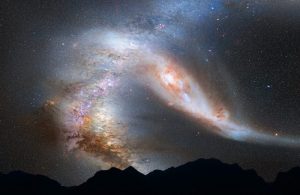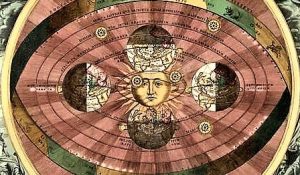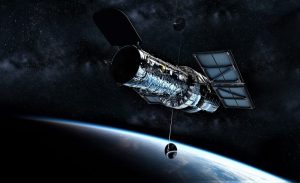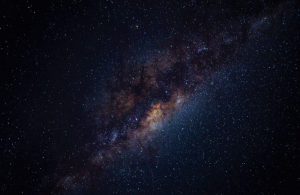Inflation theory
Inflation Theory is a group of proposals located within the framework of physics that tries to explain the rapid expansion of the universe when it was created. It tries to give an answer and solve the problem about the horizon, which consists in the distribution of matter and radiation that the universe has, because for the theory these two aspects are homogeneous in all regions. It is important to mention that inflation is a process considered an important and integral part of the cosmological model of the Big Bang. The Big Bang theory tells us that the expansion of the universe will be gradually reduced with the passage of time and the Inflation Theory tells us the opposite, stating that the universe will expand more rapidly with the passage of time, even faster than the speed of light. This theory tells us that the universe is flat and that this can be proved experimentally because the density of matter in a flat universe is closely related to the rate of expansion.
What is Inflation Theory?
It is a theory formulated after the Big Bang theory was left with several unresolved problems and unknowns. It tells us that what caused the great explosion was an inflationary force caused by an unmeasurable amount of time that originated the observable part of our universe.
What does the inflation theory say?
Inflation Theory is based on a process called inflation. This theory told us that a period of exponential expansion had occurred in the universe in which the distance between two points that were observed increased enormously due to the expansion metric of the universe. For Hubble, the expansion was constant, so the symmetry that existed was quite high. Inflation is a process of rapid expansion and takes into account a large group of cosmological ideas such as quantum theory and element physics and is a mechanism for creating the basic cosmological principle of the physical cosmology model responsible for the homogeneity and isotropy of the observable universe. According to scientist Alan Guth, in the course of the first fraction of time, after the initial explosion occurred, approximately at 10-34 seconds, the universe underwent a process of expansion, in other words, a process of rapid inflation. At that time the universe doubled in size up to 90 times. And if we ask ourselves what drove this hot and dense mixture of energy and matter, the answer is simple, the dark energy, that mysterious energy was what drove the expansion that caused the cooling of the universe and then gave rise to the process of generating matter and the unknown warp of space and time.
Who proposed the Inflation Theory
The theory of the inflationary universe was elaborated in 1981 by the American physicist Alan Guth of the Massachusetts Institute of Technology. He tried to explain the things that might have happened at the time the Universe was created by suggesting that the universe could expand exponentially during an intermediate state. Then, in 1982, Andrei Linde, a Russian cosmologist, introduced a new hypothesis of an inflationary universe, when he realized that inflation is a naturally occurring process.
Inflation Theory background
- It’s a theory based on Stephen Hawking’s scientific work.
- It was elaborated and formulated by the physicist Alan Guth, who was looking to explain the first moments of our universe.
- It arises after the Big Bang Theory, since some aspects cannot be explained with it.
- In 1982, Andrei Linge, a Russian cosmologist, created the new hypothesis of the inflationary universe.
Inflation Theory history
The theory arose in the 1980s taking into account that when the Big Bang theory arose, many elements remained unexplained. Elements such as the initial state of matter did not allow scientists to explain and apply the laws of physics; and the state of the universe uniformity of which the theory spoke was very difficult to explain because according to the Big Bang theory, the development and creation of the universe had happened with such speed that this uniformity was impossible to achieve. Alan Guth proposed his theory based on Stephen Hawking’s inflationary theory, who had studied the powerful gravitational fields, such as those found in black holes or those that were present when the universe was created. In this theory, it was explained that the matter found in the universe had been created by quantum fluctuations in a space that had nothing.
What problems does the Inflation Theory present?
Some scientists do not believe that space and time began to exist at the time the Big Bang was produced, but on the contrary, they believe that Big Bang was a series of events that marked the beginning of a new “eon” in the history of the universe. Others think that, in the future, the universe will become something very similar to what the Big Bang was. It is said that this moment, the shape or geometry of the universe will be very smooth, in contrast to the current shape.
How to cite this article?
Briceño V., Gabriela. (2019). Inflation theory. Recovered on 4 January, 2025, de Euston96: https://www.euston96.com/en/inflation-theory/










